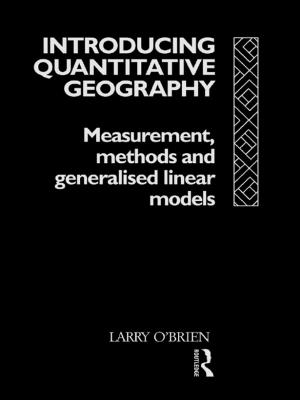Rethinking Foreign Policy Analysis
States, Leaders, and the Microfoundations of Behavioral International Relations
Nonfiction, Social & Cultural Studies, Political Science, International, International Relations| Author: | ISBN: | 9781136852442 | |
| Publisher: | Taylor and Francis | Publication: | January 26, 2011 |
| Imprint: | Routledge | Language: | English |
| Author: | |
| ISBN: | 9781136852442 |
| Publisher: | Taylor and Francis |
| Publication: | January 26, 2011 |
| Imprint: | Routledge |
| Language: | English |
Stephen G. Walker, Akan Malici, and Mark Schafer present a definitive, social-psychological approach to integrating theories of foreign policy analysis and international relations—addressing the agent-centered, micro-political study of decisions by leaders and the structure-oriented, macro-political study of state interactions as a complex adaptive system. The links between the internal world of beliefs and the external world of events provide the strategic setting in which states collide and leaders decide.
The first part of this ground-breaking book establishes the theoretical framework of neobehavioral IR, setting the stage for the remainder of the work to apply the framework to pressing issues in world politics. Through these applications students can see how a game-theoretic logic can combine with the operational code research program to innovatively combine levels of analysis. The authors employ binary role theory to demonstrate that relying only on a state-systemic level or an individual-decision making level of analysis leads to an incomplete picture of how leaders steer their ships of state through the hazards of international crises to establish stable relations of cooperation or conflict.
Stephen G. Walker, Akan Malici, and Mark Schafer present a definitive, social-psychological approach to integrating theories of foreign policy analysis and international relations—addressing the agent-centered, micro-political study of decisions by leaders and the structure-oriented, macro-political study of state interactions as a complex adaptive system. The links between the internal world of beliefs and the external world of events provide the strategic setting in which states collide and leaders decide.
The first part of this ground-breaking book establishes the theoretical framework of neobehavioral IR, setting the stage for the remainder of the work to apply the framework to pressing issues in world politics. Through these applications students can see how a game-theoretic logic can combine with the operational code research program to innovatively combine levels of analysis. The authors employ binary role theory to demonstrate that relying only on a state-systemic level or an individual-decision making level of analysis leads to an incomplete picture of how leaders steer their ships of state through the hazards of international crises to establish stable relations of cooperation or conflict.















